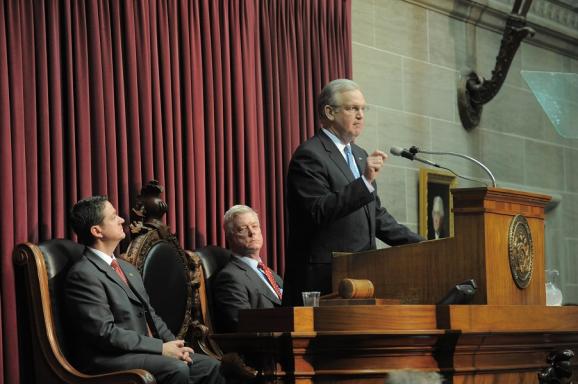
JEFFERSON CITY, Mo. – For the second time in as many years, Democratic Gov. Jay Nixon has vetoed a bill that would provide a tax cut for Missouri residents and businesses, citing potential harm to the state’s coffers – and in turn public education.
The legislation, Senate Bill 509, would reduce the maximum tax rate on personal income from 6 to 5.5 percent beginning in 2017 and allow a 25 percent deduction of business income on personal tax returns. Both provisions would be contingent on state revenues being $150 million higher than the highest of the three prior years.
In all, the bill is scored to reduce state revenues by $620 million when fully enacted. In his veto message, Nixon said the bill is unaffordable, unfair to lower-income Missourians, and could create “dangerous uncertainty” for the state’s AAA credit rating.
“You can’t punch a more than half billion hole in the budget without harming public services like education,” he said on Thursday evening. “Under no scenario do our schools get the support they need.”
Aside from the education numbers, Nixon has claimed that the bill might include a fatal flaw that he believes might eliminate the state’s income tax entirely.
“Whether we’re talking about $620 million or $4.2 billion, these numbers are crippling,” he said.
Nixon touted the reduction in Kansas’s AAA credit rating following their tax cut. Lawmakers had to return and raise taxes after their initial attempt, which is banned without voter approval in Missouri. “This report is a definitive indictment of the tax cuts without any thought approach being blindly pursue,” he said.
“The drafters can light the fuse and walk away,” he added. “They’ll be long gone before someone has to pick up the piece of a budget that has been blown apart.”
Nixon’s veto will likely be overridden in the Senate. In the House, House Majority Leader John Diehl said Thursday that he thinks he has support from all 108 Republicans and at least one Democrat necessary to reach the 109 votes required to override Nixon.
